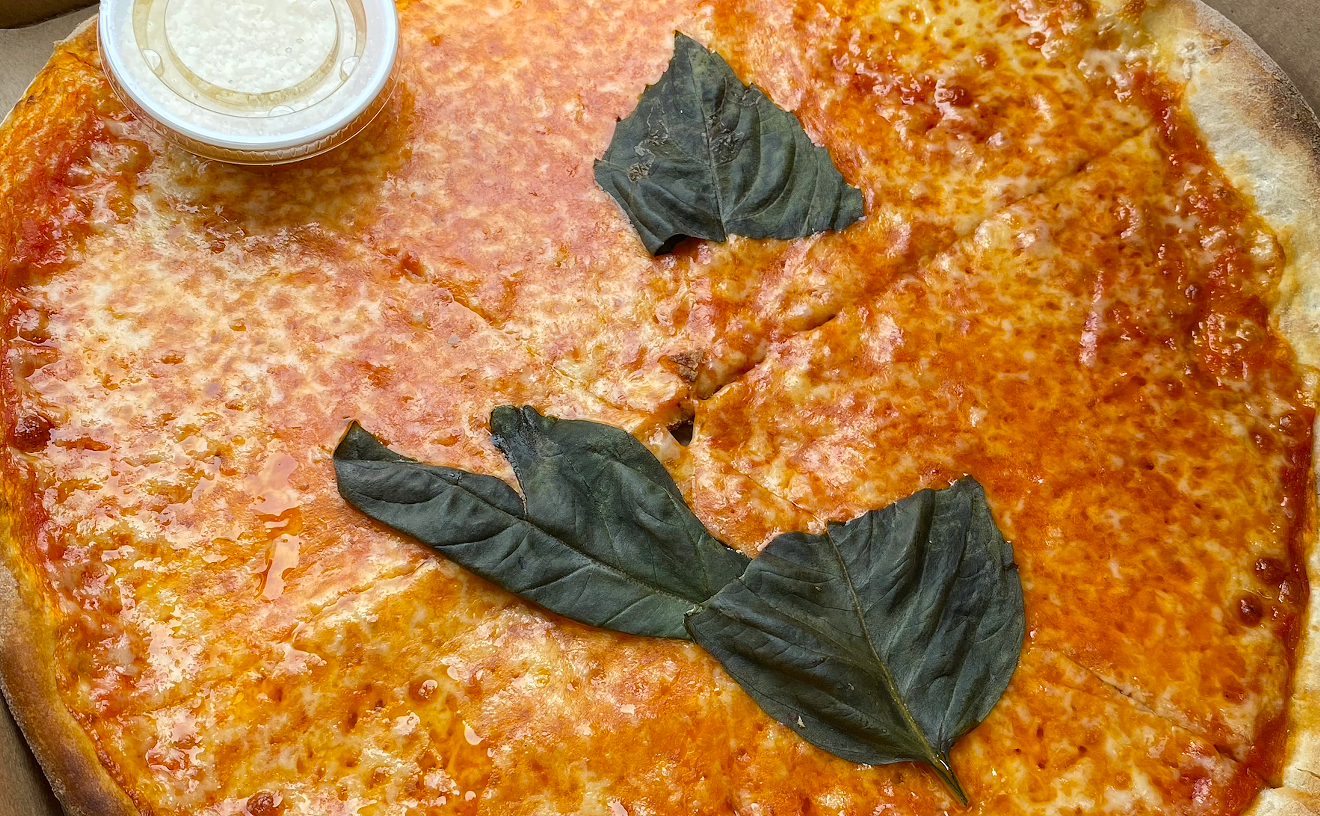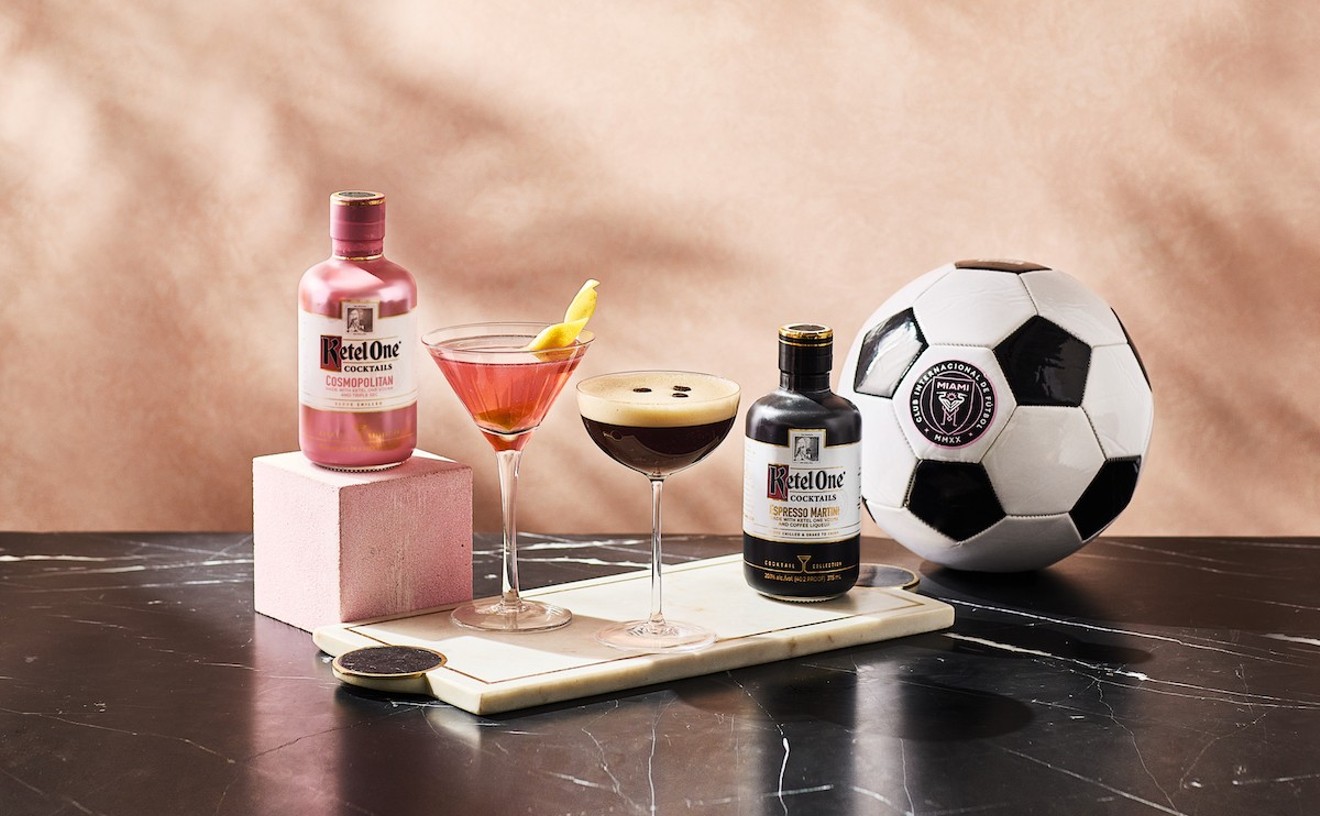It's going to be a beer-filled kind of week, folks. First, New Times' Original Beerfest is only five days away. If you haven't grabbed your tickets yet to the four-hour celebration of import and craft brews, you can pick them up here. Second, this Thursday is the opening of Beer Wars, a documentary that delves in to the sudsy battle the independent beer brewers of the world and the two, mega brewery giants, Belgian-owned AB-InBev (Budweiser) and SABMiller, headquartered in England. The film, by former beer industry exec Anat Baron, takes a closer look at what makes the world of beer continue to turn.
In the past few years, consolidation in the beer industry has led to American-owned companies like Anheuser-Busch, makers of Budweiser and Michelob, merging with foreign entities and forming these mega conglomerates. AB was already by all rights a bloated empire - now, coupled with InBev, it's a nigh-unstoppable juggernaut. Same goes for SABMiller, which gobbled up Molson Coors, which had eaten Coors, which had... well, you get the point. Together, the two beer giants do 80% of America's beer business, which doesn't leave a whole lot of the pie for everyone else. Everyone else being America's small, independent brewers, companies like Dogfish Head, Stone, Rogue, and Samuel Adams. Wait...Sam Adams? Aren't they everywhere? Well, not really. Sam, owned by Boston Ber Company, is indeed the largest American-owned brewer thanks to all those corporate mergers shipping American brands overseas. And yet, they hold just 1% of the total beer market in America.
And that's where Beer Wars picks up: SABMiller and AB-InBev just keep growing. The prohibition-era three-tiered system that requires beer be manufactured, distributed, and sold to customers by separate entities doesn't keep them in check, because they own most of the distribution. They've masqueraded their own brands as craft beer in order to push the little guys out of the market and scoop up the last few percentage points of America's beer market. (You like Blue Moon, don't you? Great. It's made by Coors.) And with a bigger political lobby than the gun and tobacco industries, these beer giants are trying to legislate their way to total domination as well.
New Times' sat down with the director of Beer Wars to find out a little more about her new film.
New Times: Tell us where you worked in the beer industry.
Anat Baron: First off, I'm a strange person to have worked in the beer industry because I'm allergic to alcohol. So this journey did not come form a love of alcohol or beer. My friend works at Mike's Hard Lemonade, and had asked me to come in and work for them, and eventually I started running it.
What made you decide to make this movie?
I wanted to do something that hasn't' been done before which is tell a documentary from the inside.
I think it was temporary insanity. But you know it was an interesting time, looking at the economy. I started in late 2005, and there was a lot of talk in the industry about the death of beer, and it all seemed very sinister. Most interesting to me was all the buzz these small craft brewers were gaining, even in the mainstream beer world. The big guys were actually afraid.
So that's where the movie starts, with the big world of beer. I started making it on a lark, actually. I got an invite to the annual trade convention that year, and had thought it would be interesting to bring a film crew there and film it. It was there that I found all the buzz about the craft brewers. Ten days later, at the Great American Beer Festival in Denver, a consumer event, I took the same crew to Denver to film that. And it was like Alice in Wonderland. The enthusiasm and the passion of the brewers themselves was completely unlike the corporate beer types I had been used to. And the dichotomy of the two worlds was so great, even aside from the fact that they taste different. I knew by how excited they were about beer that something was up.
Regarding the taste, you actually are alergic to alcohol, right?
Yes, to the point where I could die if I have it. I've tried to cure myself, but basically what happens to me is I go into anaphylactic shock. My throat closes up. It's a fun party trick, but it's not curable. But what it allowed me to do is be an insider in the industry but not a drinker. So the focus of the film is not on the taste. It takes a subjective stance on beer as a whole, not just craft beer. I do believe, as people tell me, there's an occasion for drinking a Bud or a Miller, just like there's an occasion for drinking a craft beer. So in no way am I trying to convert someone form one to another. I'm just pointing out that the playing field is not very level.
Why is that?
It's all about the presence in front of the consumer. What interested me the most was this three tier system of distribution. The distributors, between the brewers and the retailers, really control the whole process. The distributor has to agree to put it on a truck, so that the product will get onto shelves. And it's difficult for a small guy to get this kind of attention. Most of these distributors are actually called the "Anheuser-Bush distributors" or the "Coors distributors." So they're not going to pick up products that don't come from the big two.
Isn't craft beer growing, though? Don't more and more people know about it and aren't they gaining on the big guys?
Not really. For example, Sam Calagione of Dogfish Head gets a lot of buzz. He's .002% of the US beer market. Sam Adams, they're so big, they're everywhere. They're the largest American-owned brewery and they are less than 1%. So there's a question: there are 1400 small breweries and two giants. So how does a little guy compete? How do they compete in the shadow of this political system that holds them back?
The craft beer movement is growing every day. If it's not face time in front of the customer, then what's behind that in your opinion?
It's a combination of things. It's critical mass, the fact that there is a brewery within 10 miles of every American. A large part is Sam Adams, which has enticed more people into the world of craft beer. Just look at their advertisements. What you're seeing is quality of ingredients, quality of beer, not just half-naked girls and sports. And as Americans in general are turning to quality foods - chocolate, bread, whatever is artisan or organic or craft made - they are also turning to craft beer. The growth of farmers markets is huge. The consumer is more interested nowadays in finding out what's in what they consume and who's behind it. Look at the people who love great wine. Yes, you can get a cheap bottle on a supermarket shelf, but there's a big number of people who want better. Beer is the same way. Taste is what's driving people away from Bud and towards craft beer instead.
Doesn't that speak to the way we are as a culture? There's pop music, and then there's indie music. There's Hollywood, and then there's indie film. Are we changing as a culture to where the indie choice is becoming more attractive than the easy choice?
You only have to look at something like McDonald's to see that's not entirely true. Most people know by now the food is bad for them. And yet McDonald's is seeing a huge resurgence. Part of that is price, because we are in a recession and the food is cheap. But not all of it. So why then, do people like you and I still eat there?
In no way am I saying all corporations are bad. It's not that simple. They're the backbone of our economy. But at the same time we have to look at something Obama is talking about. He says that entrepreneurship and innovation is what will take us out of this recession.
Corporations have a commitment to their shareholders, not the consumer. That's not exactly a benevolent goal. Entrepreneurs have another goal entirely, which usually revolves around passion. They're putting everything into their product.
If these craft brewers like Dogfish and Stone keep growing, won't they
get to the point where they become the mega brewers they are railing
against?
Craft beer is less than five percent of the total market, and that includes Yuengling. They can't become mega brewers! Look at Sam Adams - it's one percent! It took Anheuser-Busch over 150 years to get there.Sam has been in business since 1984. I don't think there's a chance. The bigger question is why do the corporations, AB-InBev and SABMiller, have to have it all? They can't let these other companies have success. It's not a legal question, because that's just capitalism. It's a moral one.
I had to change the ending of my movie, because at the last moment, AB gets bought by InBev. Here's this dynasty that's been around forever. A family that grew into the biggest beer maker in America. And they get bought out! So what happened? Where did it go awry for them? Getting bought out wasn't what they perused; it happened to them. Why? Did they get too greedy? These are questions there that need to be answered.
If people want a product, but they can't get it, is that fair? That's the intellectual question of the movie: "Is this what free enterprise and capitalism was supposed to be?" I'm fascinated by the business world, and here are these two entities that are against each other. In other industries outside of beer, I think the tides can change easier. The beer industry is different because of this three tiered system and
it's laws. Beer is one of the most regulated industries in America.
There are 37,000 laws - that's the number we came up with doing the
film. And these huge corporations have strong lobbies.
So should we do away with the three tier system?
It may be time to revisit it. The beer industry is powerful in Washington.
The combined political contribution in 2006 was bigger than guns and tobacco combined, so yeah they're powerful.
You have 80% of the beer in America controlled by two companies, so it's working for them and it's working for their distributors.
Are you hoping the movie opens some eyes in that regard?
If anything, I want it to start a conversation. What I care about is getting people to talk about what's going on in the beer industry.
That's the whole idea, that you don't just see it and say "whatever." That's why afterward, we're going to have a live panel discussion with Sam (Cagalione), Rhonda Kallman (co-founder of Boston Beer Company), Charlie Papazian (the Godfather of homebrew). Ben Stein is going to host it, too. So the people in the film will be there talking about what happened after it was finished, and the issues that are raised by the film.
Do you think your beer industry friends are going to be upset by the film?
I went in search with the truth, and that's what I put in the film. If they're upset by the truth, I can't do anything about that. But I'm telling the story from my view, on my own. It's all filtered, just like every other form of media is. I just picked my subject and followed it, and this is what I came up with.
Beer Wars opens nationwide on Thursday, and will be followed by a live simulcast of the panel discussion. For a complete list of theaters, visit www.beerwarsmovie.com.










